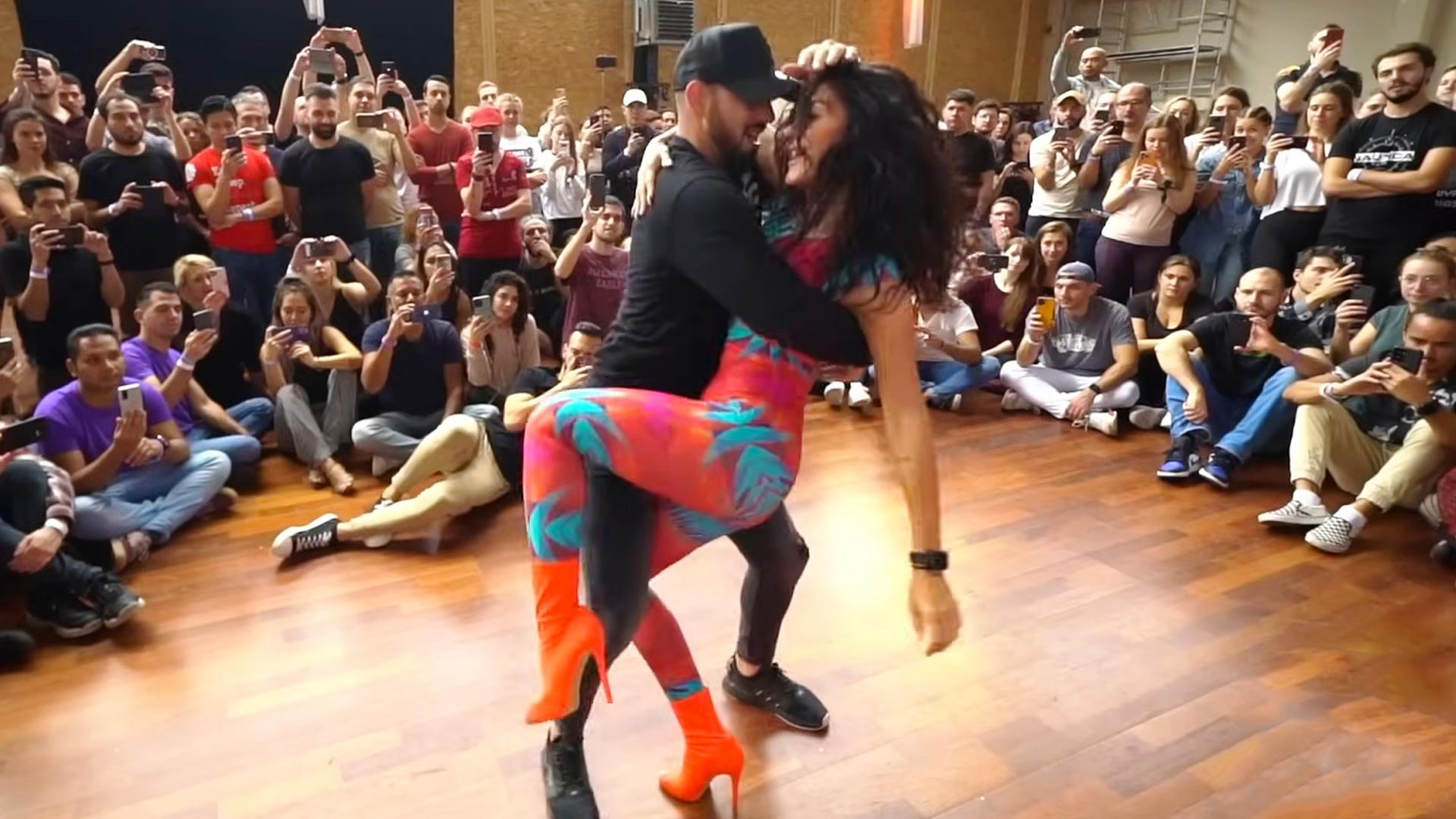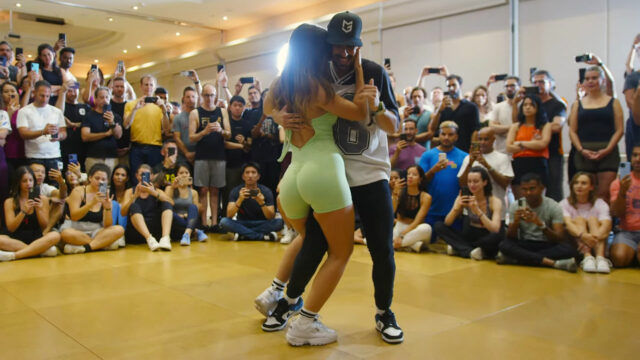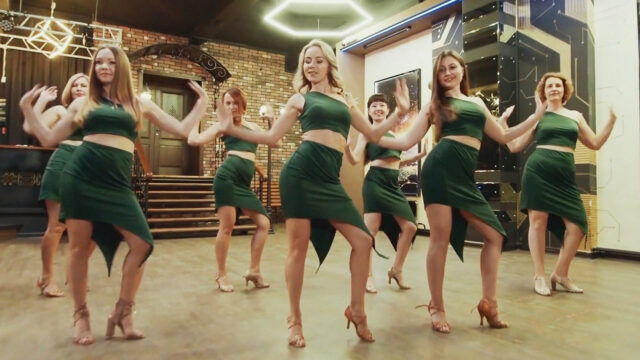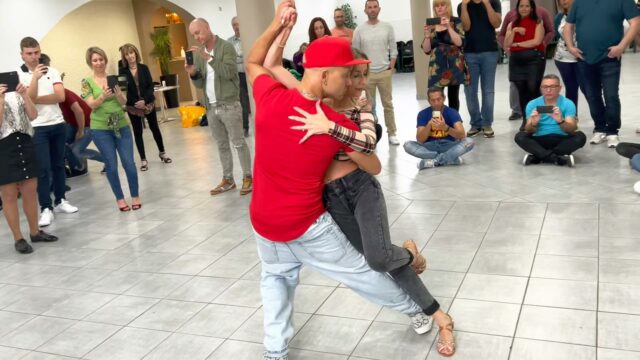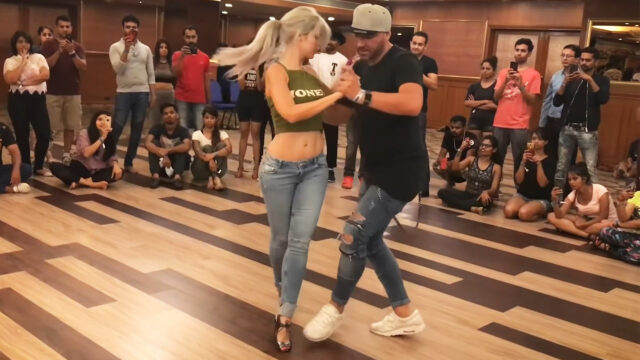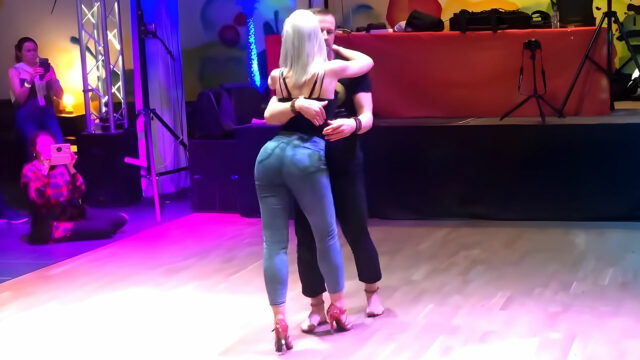Dancing can be a fun hobby, form of exercise, or special skill that brings joy. However, for those in relationships, dancing has the potential to stir up feelings of jealousy and insecurity between partners. Of course it’s not always the case. There are wonderful famous dance couples out there that seem to thrive in such environment. One such example is Daniel and Desiree. They met at a dance festival in 2007, started dancing together and quickly became global bachata super stars:
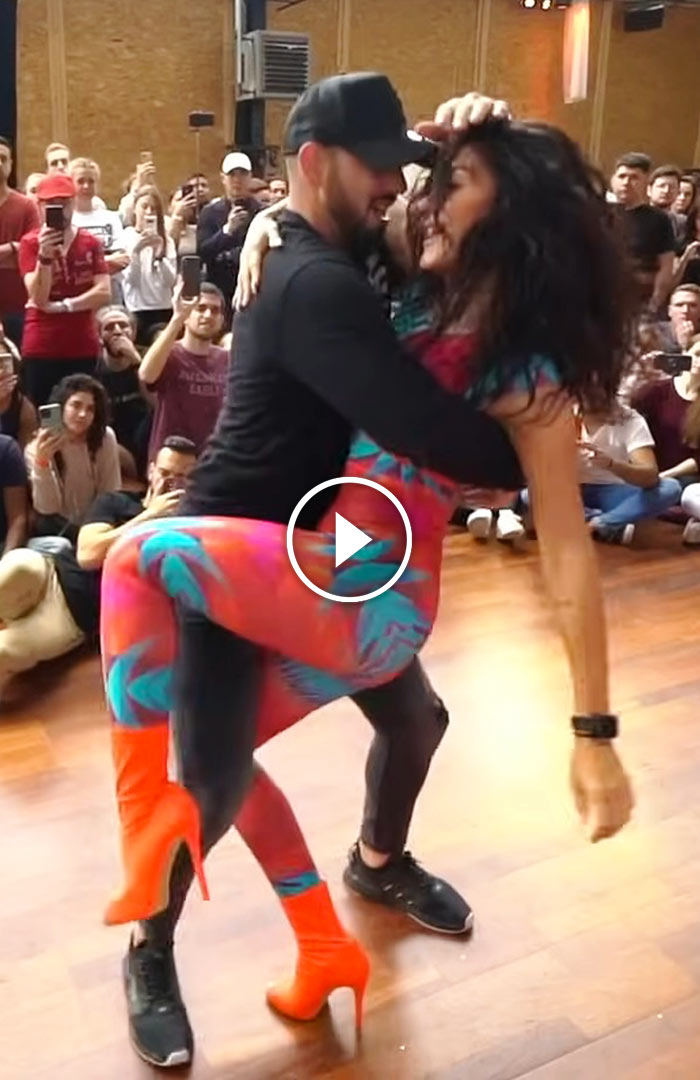
Not only these two regularly participate in hundreds of dance festivals all over the world teaching bachata, they are also often seen dancing with other dancers and fans. Despite all of that they found success both as dance partners and as a married couple with a child born in 2018. They also run their own dancewear fashion line called Gueguere. However not every dance couple can withstand such challenges. There are a few reasons why.
- He Doesn’t Like Dancing and Doesn’t Allow Me to Dance
- Shirtless Barefoot Street Bachata by Elvis Stephen
- Breathing Space: How Solo Moments Enhance Sensual Bachata Dance
Firstly, dancing is often viewed as an intimate activity. Social dances like salsa or bachata involve holding someone close physically. The movements can seem flirtatious or sensual, even if the dancers have no romantic interest in each other. This intimacy shared between dance partners has the power to make a significant other feel threatened. They may worry that emotional or physical boundaries are being crossed.
Additionally, jealousy can stem from possessiveness and lack of trust in a relationship. If a partner does not have confidence in themselves or the strength of their bond, watching their loved one dance intimately with someone else can spark doubt, envy, and even anger. They may feel insecure, fearing that their partner finds the dance partner more attractive or talented.
Finally, the costumes and performances involved with dancing can contribute to jealousy. Revealing costumes worn during Latin dances, for example, or chemistry displayed on stage between partners during routines could lead to envy or suspicion about off-stage interactions. A partner may rationally understand it is just a performance or costume, but still feel threatened.
How Can This Issue Be Navigated?
If you love dancing, but your partner feels uncomfortable with it, there are some things that can help avoid problems:
- Communicate openly about any concerns, reassuring your partner of commitment
- Set boundaries about what interactions feel appropriate
- Invite your partner to watch practices or performances
- Learn to dance together – this can be bonding and educational
With care, understanding, and mutual respect surrounding dance activities outside of the relationship, couples can mitigate risks of unwanted jealousy. Reasonable confidence, trust, and security should exist inside a strong relationship regardless of hobbies enjoyed apart from one another.
Key Considerations
Dancing does not have to damage a relationship. With honest communication, healthy boundaries, and confidence in the commitment you share, jealousy can be avoided. Partners may even discover new joint passions for dance and deepen bonds by supporting each other’s talents. If approached openly, dance can strengthen a relationship rather than introduce problems.
As with any hobby where chemistry or sensuality are displayed, transparency about the nature of these interactions is critical. Providing insight to your partner about the reality behind rehearsals and routines can demystify dance and ease doubts. Respecting emotions and nurturing intimacy within the relationship are also vital.
If you enjoyed this article, feel free share it with your friends and let them know what you think about it. Also, consider checking out our most recent posts and stay in touch. Thank you!
